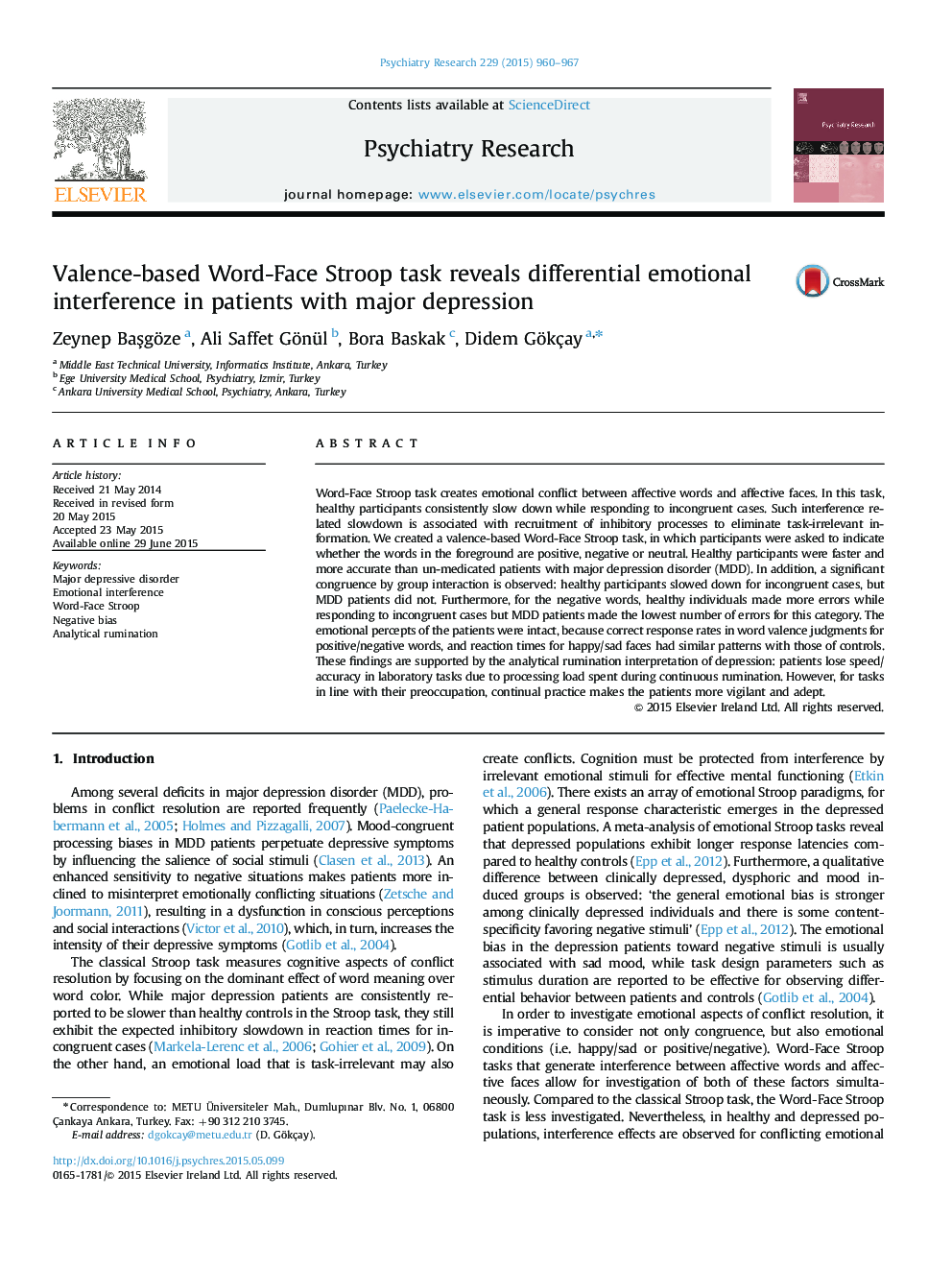| کد مقاله | کد نشریه | سال انتشار | مقاله انگلیسی | نسخه تمام متن |
|---|---|---|---|---|
| 333407 | 545917 | 2015 | 8 صفحه PDF | دانلود رایگان |

• In the Word-Face Stroop task, participants indicate the valence of the words in foreground, not faces in background.
• Stimuli consists of words with positive, negative valence. Arousal is neutral for all words.
• Sixteen healthy controls and sixteen unmedicated major depressive disorder patients participated.
• Despite the fact that patients are slower than controls, the two groups' response time patterns are similar across valence categories. Hence emotional percept of patients is intact.
• The response time patterns indicate a significant interaction across congruency and participant group.
Word-Face Stroop task creates emotional conflict between affective words and affective faces. In this task, healthy participants consistently slow down while responding to incongruent cases. Such interference related slowdown is associated with recruitment of inhibitory processes to eliminate task-irrelevant information. We created a valence-based Word-Face Stroop task, in which participants were asked to indicate whether the words in the foreground are positive, negative or neutral. Healthy participants were faster and more accurate than un-medicated patients with major depression disorder (MDD). In addition, a significant congruence by group interaction is observed: healthy participants slowed down for incongruent cases, but MDD patients did not. Furthermore, for the negative words, healthy individuals made more errors while responding to incongruent cases but MDD patients made the lowest number of errors for this category. The emotional percepts of the patients were intact, because correct response rates in word valence judgments for positive/negative words, and reaction times for happy/sad faces had similar patterns with those of controls. These findings are supported by the analytical rumination interpretation of depression: patients lose speed/accuracy in laboratory tasks due to processing load spent during continuous rumination. However, for tasks in line with their preoccupation, continual practice makes the patients more vigilant and adept.
Journal: Psychiatry Research - Volume 229, Issue 3, 30 October 2015, Pages 960–967